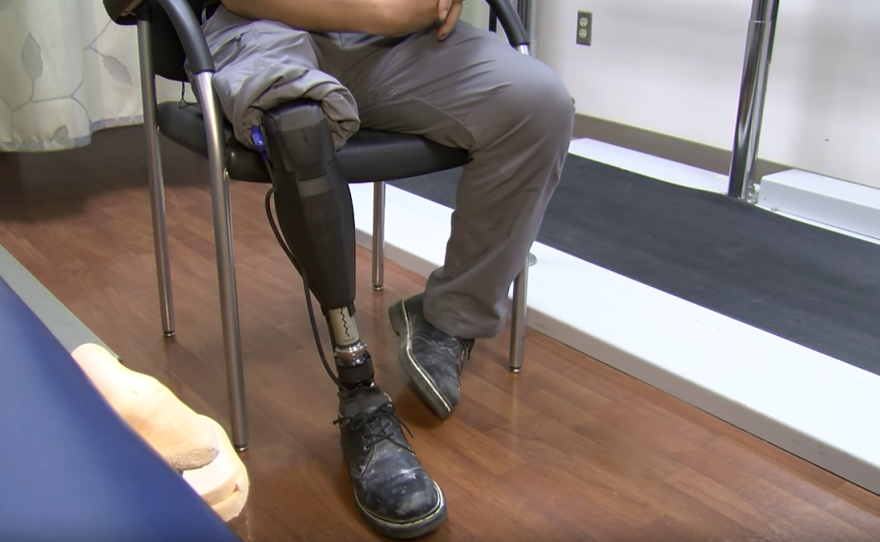The Navy and Veterans Administration Hospital in La Jolla is releasing the most complete data so far on how amputees are dealing with their injuries from the Iraq and Afghanistan wars.
The VA and the Naval Health Research Center are collaborating on a long-term study of wartime amputees. Researcher Ted Melzer recently went through the medical records of all 625 troops with severe lower limb injuries from between 2001 and 2008. The group who seemed to have the best outcome? He found troops who had their leg amputated right away seem to do better than those who waited or had reconstructive surgery.
“They had lower rates of PTSD. They had lower rates of infection,” Melzer said.
The study was published in the January edition of PLOS ONE, the journal of the Public Library of Science. The study doesn’t look at why the outcomes were different, though Melzer has a few theories on why people who have their leg amputated immediately seem to do the best.
“They have rehab with many of their comrades,” Melzer said. “Early aggressive rehab promotes their psychological well-being as opposed to the other group, which go through limb salvage or wait for late amputation. They have to go through many surgeries. Their outcome in uncertain. And there is a lot of trauma going through multiple surgeries.”
Researchers found that those who had their leg amputated immediately had a few complications both physically and mentally.

One surprising finding: While early amputees report a lower rate of psychological issues, all amputees have a relatively high level of PTSD, and it didn’t begin to show up until a year after the actual trauma.
The data from this study will be folded into the Wounded Warrior Recovery Project which is following the lives of more than 5,000 troops injured in the Iraq and Afghanistan wars. Participants in the study receive a questionnaire every six months, which asks about their quality of life.
“What we’ll be able to accomplish is identify those particular projects that actually move the quality of life meter,” said Michael Galarneau, Director of Operational Readiness, Research Naval Health Research Center
This sort of data on amputees has never been gathered on this scale. Ultimately, it may not only help these veterans long-term but it could help anyone who is facing the tough choice of whether to go forward with an amputation.

Randell Leoncio had his right leg amputated above the knee in 2005. He was a Navy Corpsman who was in Iraq less than a month when his Humvee was hit by a roadside bomb in Ramadi. When he woke up, his leg was gone.
“The guys who had to make that decision. It was a tough decision but they’ve done really well afterwards. Almost all of them said I can’t believe I didn’t do it sooner. A lot the pain went away,” Leoncio said.






